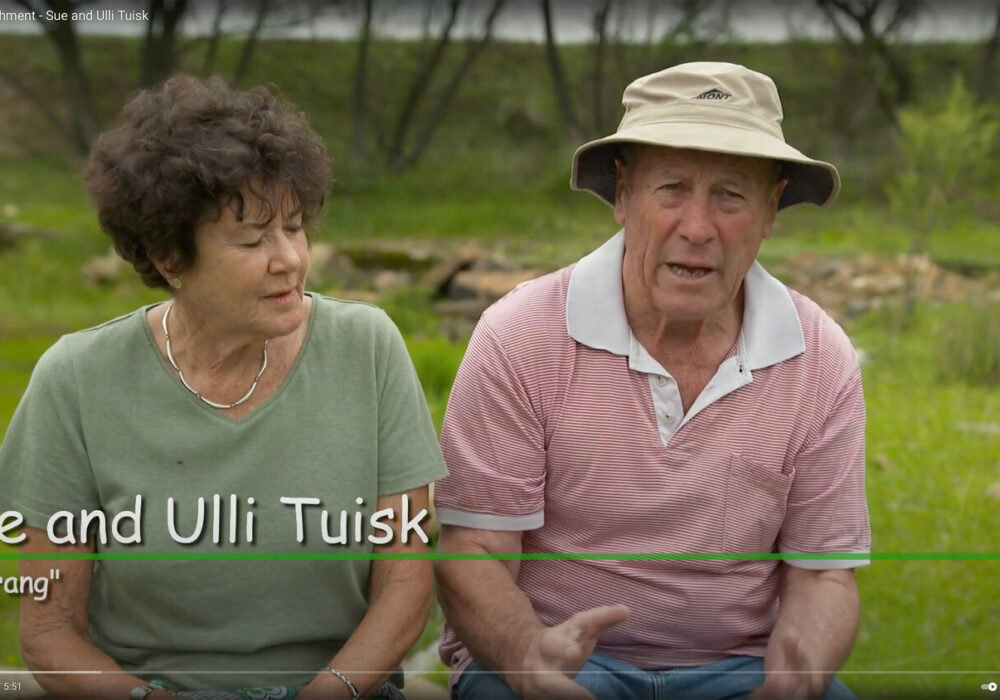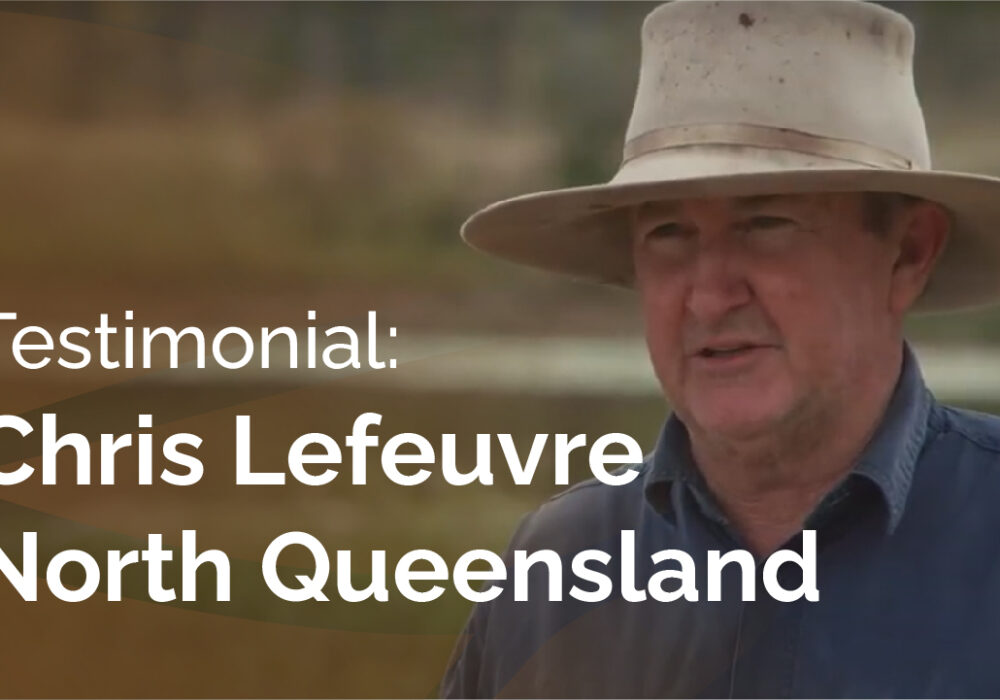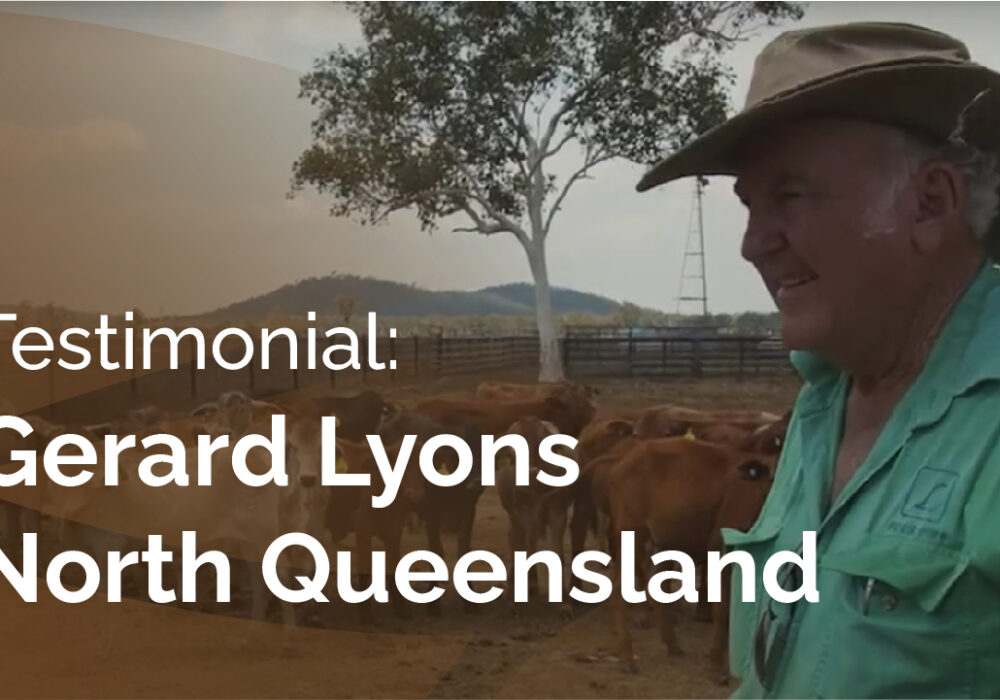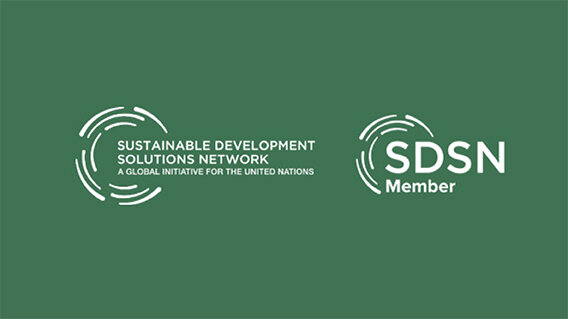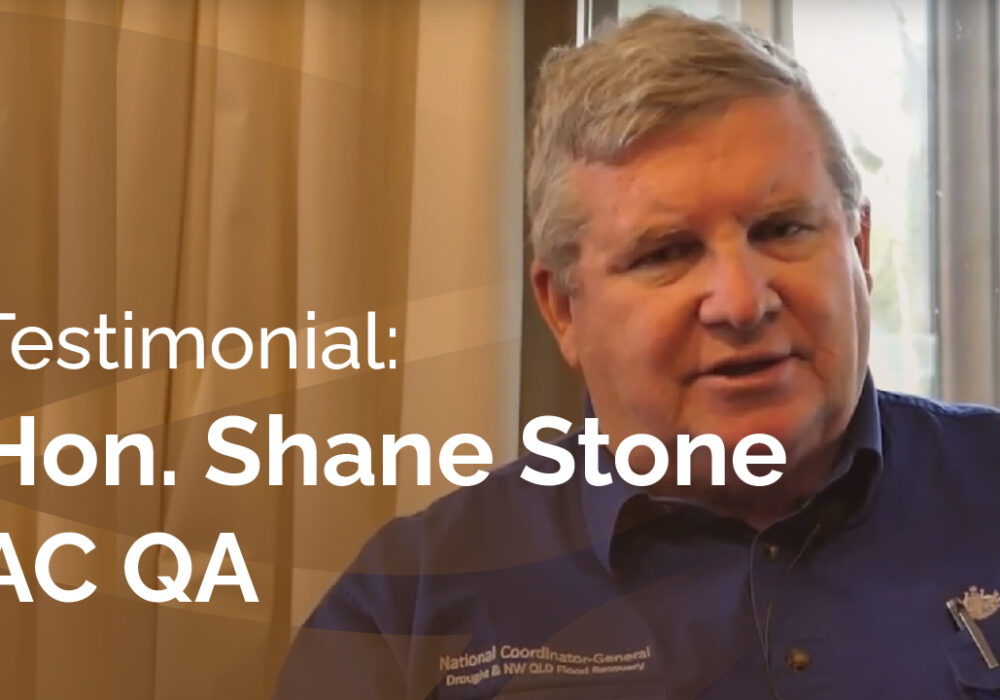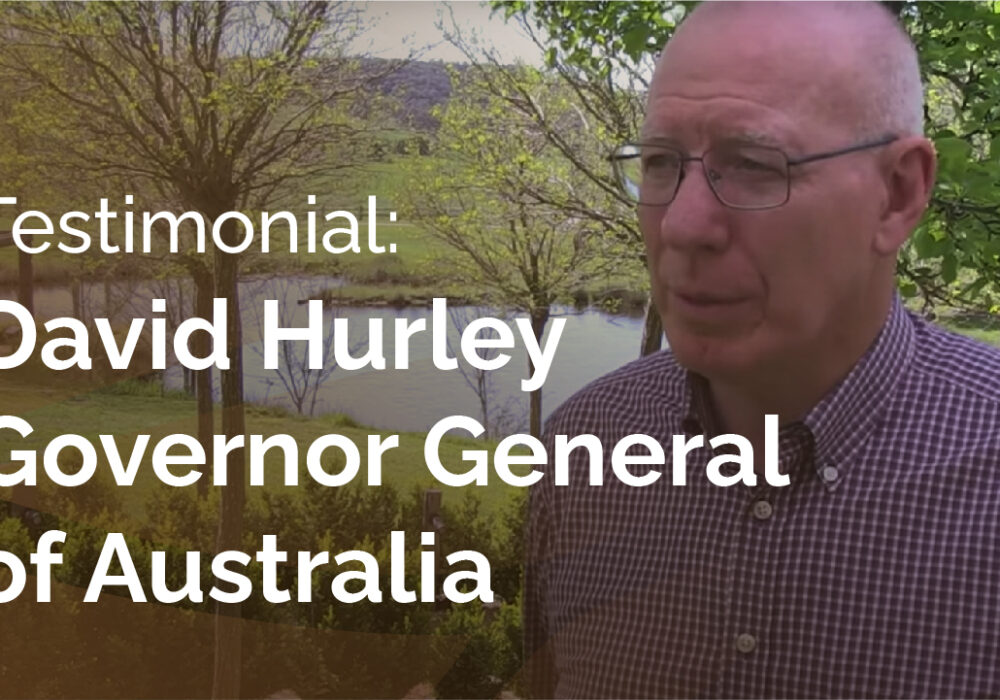“The idea of agriculture and rehydration working together is a fantastic thing.”
– Gerard Lyons, ‘Four Mile Station’ near Majors Creek.
Hear from Australian farmers in Queensland and New South Wales, the Australian Government and the United Nations Sustainable Development Solutions Network as they attest to the success of our sustainable agriculture initiatives. Discover where it all began at Mulloon Creek and the profound changes our work has inspired in communities and landscapes alike.
Navigate to
Please click on the ‘Play’ icon to watch the testimonial videos.
Please click on the ‘Play’ icon to watch the testimonial videos.
Please click on the ‘Play’ icon to watch the testimonial videos.


